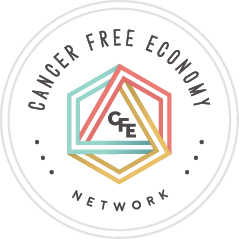Virtual symposium
East Palestine 6 months after
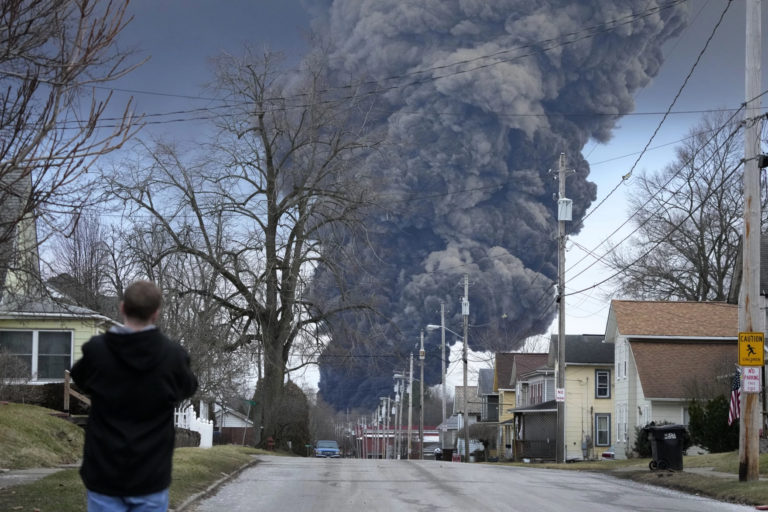
6 Months After the Train Derailment: What's it like to live in the impacted area? What do we know? What remains unknown? And how do we prevent future disasters like this?
August 3, 2023 12pm-5pm EDT
Thanks to all who joined us for this symposium, if you missed out feel free to check out the following resources and recordings. We’ve gathered relevant resources and action opportunities at the links below.
Event Takeaways & Quotes from Panelists —
Event Coverage: East Palestine 6 months later: Health issues persists and answers are elusive (Environmental Health News)
Resources & Calls to Action
This virtual symposium examined how life has changed for the people of East Palestine and nearby communities six months following the catastrophic train derailment; reviewed the available science, what we still don’t know, and what is needed to bridge the gap; examined policy options to prevent future disasters, ensure that polluters are held responsible, and protect communities and workers; and develop plans for coordinated action.
Welcome and introductory remarks
Panel 1 Voices from East Palestine: Residents talk about the immediate aftermath of the derailment and how their lives have changed.
Misti Allison | East Palestine Resident
Hilary Flint | Vice President of East Palestine Unity Council
Zsuzsa Gyenes | Lead, Community Engagement of East Palestine Unity Council
Amanda Kemmer | Volunteer of East Palestine Unity Council
Moderated by Audrey Tran Lam | Center for Energy & Environmental Education at University of Northern Iowa
Panel 2 Researchers Panel: What do we know? What do we need to know?
Erin N Haynes, DrPH, MS | Professor and Chair, Epidemiology and Environmental Health at the College of Public Health, University of Kentucky
Molly Jacobs | Director of Applied Research at the Lowell Center for Sustainable Production at the University of Massachusetts Lowell
Dr. Andrew Whelton | Professor of Civil Engineering and Environmental Ecological Engineering at Purdue University
Moderated by Dr. Ted Schettler | Science Director at Science and Environmental Health Network
Panel 3 Policy Panel: How do we prevent similar events in the future? How do we increase accountability and transparency?
Jacquelyn Omotalade | Climate Investments National Director for Dream.Org
Glenn Olcerst | Rail Pollution Protection Pittsburgh (RPS)’s General Counsel
Senator Katie Muth | PA District 44
Moderated by Saleem Chapman | Policy + Legal Engagement Manager for Cancer Free Economy Network
Breakouts Discussions: Policy advocacy, science advocacy, connecting impacted communities and workers
—–
PLANNING COMMITTEE
Ashleigh Angel, Cancer Free Economy Network
Debra Erenberg, Cancer Free Economy Network
Andre Green, Cancer & Environment Network of Southwest Pennsylvania
Hilary Flint, Beaver County Marcellus Awareness Community
Zsuzsa Gyenes, East Palestine Unity Council
Vanessa Lynch, Moms Clean Air Force
Rachel Massey, Collaborative for Health & Environment
Rachel Meyer, Moms Clean Air Force
Jamie San Andres, Cancer Free Economy Network
Audrey Tran Lam, Cancer Free Economy Network/University of Northern Iowa Center for Energy & Environmental Education
Makenzie White, Cancer Free Economy Network
Kayla Williams, Cancer Free Economy Network/Clean Production Action
—–
PARTNER ORGANIZATIONS
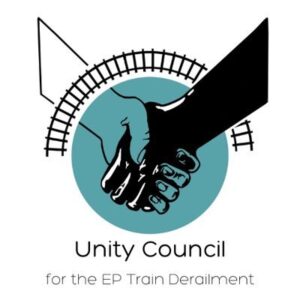
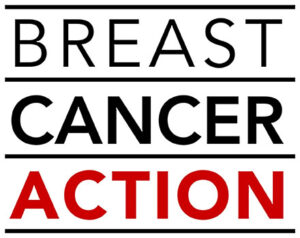



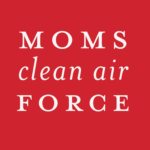
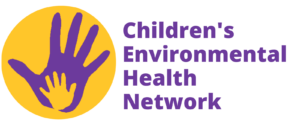
Statements from CFE and CFE Members
Cancer Free Economy Network, East Palestine Disaster Highlights Danger of our Toxic Economy
River Valley Organizing, Community Demands for Norfolk Southern, Federal Government
Breast Cancer Action, The Latest Train Derailment, Chevron, the EPA — and Breast Cancer
Breathe Project: Norfolk Southern Derailment and Explosion Raises Serious Concerns for All Pittsburgh-Region Residents
Cancer & Environment Network of Southwestern Pennsylvania: Regional Network Calls on NIH and CDC to Establish a Public Health Research Infrastructure in the Wake of a Toxic Disaster
Environmental Health Project: Statement on Train Derailment and Fire in East Palestine, Ohio
Lowell Center for Sustainable Production (Joel Tickner and Molly Jacobs, with CFE founding member Charlotte Brody): Chemistry Urgently Needs to Develop Safer Materials (Scientific American, February 25)
NAACP Statement on East Palestine and Surrounding Communities (Ohio Conference NAACP)
Science & Environmental Health Network, (Blog) Why Our Trains Are Toxic: The Dioxin Backstory; March 2023 Networker: Keeping Track of Trains
CFE Member NIEHS (the National Institute of Environmental Health Sciences) offers resources, trainings and tools to empower responsible health research in the wake of chemical disasters
—–
Statements and Resources from Allied Organizations
Environmental Justice Health Alliance for Chemical Policy Reform, Chemical Disaster Prevention Resources and map of chemical disasters
Toxic Free Future, More than 100 groups demand EPA conduct dioxin testing in areas impacted by East Palestine train derailment

